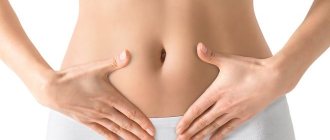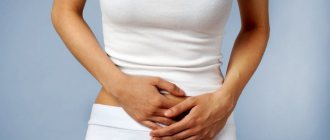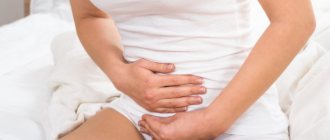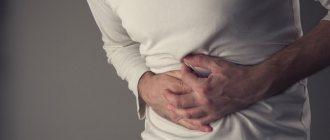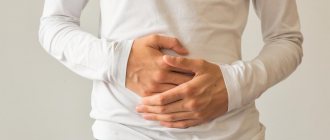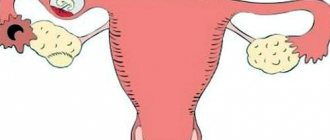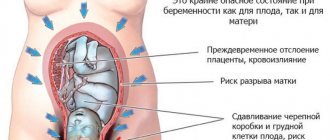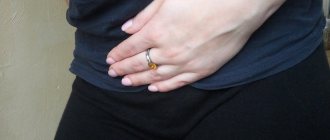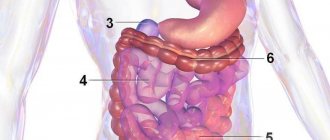Heaviness in the lower abdomen in women is associated with various problems. Most often we are talking about gynecological diseases, as well as natural processes associated with the course of the menstrual cycle. Pain in the lower abdomen can also be caused by pathological processes in the large intestine. If the sensations are localized on the left, then this indicates inflammation of the sigmoid colon. If on the right - about similar processes in the cecum. Only a doctor can make an accurate diagnosis.
Various sensations are associated with this symptom. Sometimes it's just discomfort, a feeling of fullness. In other cases, pain of varying degrees of intensity appears. It all depends on what reasons caused this phenomenon. They can be functional or organic. The last group includes various diseases of the pelvic organs:
- Uterine fibroids are a benign formation that requires surgical intervention;
- ovarian apoplexy - a dangerous condition accompanied by bleeding;
- torsion of the pedicle of an ovarian cyst;
- endometriosis and inflammatory disease of the endometrium (endometritis);
- inflammation of the appendages and tubes – adnexitis;
- various pathologies during pregnancy (premature placental abruption, threatened miscarriage, ectopic pregnancy), complications after abortion;
- diseases of the gallbladder and urinary system (cholecystitis, pyelonephritis, cystitis).
As for functional reasons, this includes menstrual disorders (they are called algodismenorrhea), pain during ovulation (when a mature egg leaves the ovary in the middle or in the second half of the cycle), stagnation of menstrual blood when the uterus is bent.
The concept of algodismenorrhea includes several different problems. Primary algodismenorrhea occurs during menstruation itself. This is an unpleasant pulling sensation or pain of a similar nature. This is a chronic disease. Secondary aldigomenorrhea appears before menstruation. It causes cramping sensations in the lower abdomen. Most often it develops against the background of gynecological diseases.
It is often confused with PMS, but they are different things. Premenstrual syndrome is a complex symptom complex, a kind of reaction of the body to hormonal changes, the causes and mechanism of which are still not fully understood. And it is not always accompanied by heaviness in the lower abdomen. He may have exclusively neuropsychiatric symptoms (irritability, depression), vascular manifestations, and sometimes only swelling and headache are observed. Primary algodismenorrhea is part of such a complex.
Aching pain in the lower abdomen indicates that there is an inflammatory process in the uterus or appendages. With adnexitis, when inflammation affects the ovaries, such sensations occur on the left or right, depending on which of them is affected. If pain is felt in the middle of the abdomen, endometritis is often present.
The latter is an inflammation of the uterus. It develops in acute or chronic form. In both cases, risk factors include unsuccessful insertion of the IUD, abortion, or improperly performed surgery, due to which pathogenic microorganisms penetrate the cervical barrier. In the acute form, the pain is sharp and accompanied by an increase in temperature. The chronic form has a latent course. The main symptoms of the disease are cycle disruption caused by regeneration processes on the mucous membrane and a decrease in the ability of the uterus to contract. The woman feels nagging pain in the lower abdomen, and serous-purulent discharge appears. To make such a diagnosis, you need to conduct a full examination.
Since the main cause of acute forms of endometritis or adnexitis is bacterial infections, treatment involves the use of antibiotics. After completing this course, physiotherapeutic procedures are carried out and vitamins are prescribed. But with chronic endometritis, antibacterial therapy does not make sense, since there may not be an infection, and the disorders have already acquired a functional character. In this case, this form of the disease is treated differently - the main task is to restore the functions of the uterus. Therefore, cyclic hormone therapy and immunomodulators are prescribed. Physiotherapeutic procedures are also carried out.
Ovarian apoplexy is a very dangerous phenomenon. It is due to the fact that in the middle of the cycle a mature egg was released from the ovary, which led to hemorrhage. Follicle rupture is always accompanied by hemorrhage. But in this case, the vessels of the appendage are damaged, and blood enters the tissues of the organs and the abdominal cavity.
This occurs with excessive physical exertion and heavy lifting. The rupture is also associated with the abrupt withdrawal of hormonal drugs. Sometimes the reason is that the device remains in the uterine cavity for too long. If blood enters the abdominal cavity, very severe pain occurs. More often it is localized in the ovary that is damaged, but can be diffuse. With severe bleeding, additional symptoms appear, as with anemia - weakness, pallor. Sometimes loss of consciousness is characteristic. Blood pressure also decreases.
With ovarian apoplexy, treatment at home is impossible. Urgent surgical intervention is required. So if the described symptoms appear, you need to call an ambulance.
With excessive loads, another disease occurs - torsion of the pedicle of the ovarian cyst, which leads to disruption of the venous outflow in it. The cyst swells, causing aching pain in the abdomen. This clinical picture occurs when the torsion angle is 90°. But it can also be 360°, in which case arterial blood stops flowing to the cyst. In the latter case, symptoms of an “acute” abdomen occur, the pain becomes very severe and is cramping in nature. Sometimes nausea and vomiting occur, and body temperature rises. In this situation, only surgical treatment is possible, since it is necessary to remove the cyst.
Heaviness in the lower abdomen is often a signal that pathological processes are occurring in the pelvis and urgent attention must be paid to them. Often people experiencing pain do not know its cause, but, as is known, pain is the main indicator that something is wrong in the body. This is how the brain signals something is wrong, and action needs to be taken.
Causes of heaviness in the lower abdomen
Physiological reasons
Natural or physiological causes are associated with dietary errors or stress in both sexes, and in women - with the functioning of the genital organs. These are temporary disorders of the internal organs that do not cause harm to health.
Power supply errors
If you eat too much or the food is unusual - early vegetables after winter, new “overseas” products, then the intestines are not ready to absorb them. It takes some time to synthesize enzymes and digestive juices, and the food bolus “stagnates” and moves slowly.
When a person initially has problems with digestion, it is advisable to change his diet very carefully, adding new things gradually and little by little, assessing the body’s reaction.
Anxiety and negative experiences cause spasm of internal organs. This is a reaction from the autonomic nervous system, which is responsible for our survival. It is impossible to regulate such body responses by willpower. Even when a person outwardly seems calm and his behavior is orderly, all internal organs are literally screaming for help.
If the intestines are spasmed, food cannot move through it, resulting in stagnation, which manifests itself in heaviness. Patients describe this condition colorfully: “as if swallowed by a stone.”
Menstruation
Teenage girls experiencing their first menstruation suffer from discomfort. This is explained by the “tuning” of the concentration of prostaglandins - hormone-like substances that act as biological mediators. Prostaglandins increase all types of sensitivity, making teenagers literally feel all physiological processes.
Heaviness and discomfort in the lower abdomen most often bothers those women who have not yet given birth. The angle of inclination of the body and cervix in nulliparous women is such that simple swelling of the mucous membrane before menstruation causes heaviness and pain. This is corrected during childbirth.
Pregnancy
The growth and development of the fertilized egg, embedded in the wall of the uterus, causes a change in the spatial orientation of the surrounding tissues. The mucous membrane swells, new vessels grow, and the uterus steadily enlarges. The ligaments holding the uterus are stretched, the abdominal organs are compressed, and the bladder is deviated. Body weight and the load that all organs bear increase.
Heaviness in the lower abdomen during pregnancy is normal and occurs in almost all women.
Pathological causes
There are many diseases that begin with heaviness in the stomach. If there is no obvious reason for the severity, it is better not to postpone visiting a doctor. All organs located in the pelvis can be a source of discomfort.
Irritable bowel syndrome
This disease affects up to 30% of the planet's population, with women of working age at risk. In addition to heaviness, there is flatulence, rumbling, a feeling of incomplete bowel movement, and digestive disorders. The heaviness and mild pain usually decreases after visiting the toilet.
Intestinal tumors
The additional volume that forms as the tumor grows puts pressure on the surrounding tissues and interferes with the movement of the food bolus or feces. The tumor grows gradually, the body adapts to it. Unfortunately, without examination it is impossible to detect a dangerous formation in the early stages.
Inflammation of the bladder is accompanied not only by heaviness in the lower abdomen, but also by dysuric phenomena - pain, an irresistible urge to urinate, and a frequent need to visit the toilet. In men, cystitis is accompanied by discomfort spreading to the perineum, scrotum, and rectum.
Varicose veins of the pelvis
More often, women who have dilated veins in their legs suffer from this. Discomfort in the abdomen occurs after lifting and carrying heavy objects, long walking, or intense physical work. The severity becomes almost constant in those women who have had many abortions or childbirths. Also, unpleasant sensations haunt those women who have not received sexual release for a long time or are dissatisfied with their partner.
Menstrual irregularities
It is caused not only by a violation of hormonal regulation, but also by tumors that develop in the pelvis. These can be either harmless fibroids that change their size in accordance with fluctuations in estrogen concentration, or malignant formations. The risk group is women over 30 years old. Any discomfort in a woman that occurs outside of regular menstruation requires medical intervention.
Gynecological inflammation
More often these are chronic processes that subside and worsen again. As a rule, women “carry” such inflammation until severe pain forces them to see a doctor.
Inflammation or dystrophy of the hip joint
Diseases of the hip joints at first do not have very specific manifestations. I am concerned about incomprehensible discomfort, mild pain, and some difficulties when walking. The cause can only be determined through examination.
Diagnostics
Ultrasound of the abdominal organs
If the disease manifests itself more than once in the patient, then a doctor’s consultation is required. After clarifying complaints, clarifying the history of the disease and life, as well as conducting a physical examination, the physician will be able to establish a presumptive diagnosis. Then the clinician prescribes special methods of laboratory and instrumental diagnostics, especially ultrasound of the abdominal cavity and pelvis, which make it possible to accurately determine the cause of the disease, make an accurate final diagnosis and prescribe the correct treatment.
When should you definitely consult a doctor?
Heaviness in the lower abdomen must have a specific reason. If it is not there, then this is already a reason to visit a doctor. You need to see a specialist immediately if:
- heaviness turns into pain;
- body temperature rises;
- constipation and diarrhea alternate;
- Nausea and vomiting are bothersome;
- body weight decreases without diets and restrictions;
- weakness appears;
- the menstrual cycle is disrupted;
- cold sticky sweat appeared;
- worried about frequent urination and pain;
- there was discharge from the genital tract not associated with menstruation;
- gait is impaired;
- There was an incomprehensible weakness and decreased ability to work.
How to find out the cause of heaviness in the stomach?
The doctor prescribes an examination based on the clinical picture. The following examinations may be prescribed:
- Ultrasound of the pelvic organs;
- cystoscopy;
- colonoscopy;
- sigmoidoscopy;
- irrigoscopy;
- gynecological examination;
- blood test for sex hormones;
- Analysis of urine;
- blood test for tumor markers;
- x-ray of hip joints.
As a result of the examination, the true cause is always discovered; all that remains is to undergo a course of treatment.
It depends on what disease is causing the heaviness in the lower abdomen; there are no uniform recommendations. Treatment may be like this:
- diet, digestive enzymes and antispasmodics for irritable bowel syndrome;
- chemotherapy or surgery for intestinal tumors;
- antibacterial and anti-inflammatory treatment for cystitis;
- venotonics and gymnastics for dilation of the pelvic veins;
- correction of hormonal status in case of menstrual irregularities;
- antibiotic therapy and metabolic agents for chronic gynecological inflammation;
- drugs to restore cartilage or implantation surgery for inflammation or destruction of the hip joint.
First aid
Possible only with severity caused by physiological reasons:
- sorbents, drinking plenty of fluids and short-term fasting when overeating;
- rest in a lying position, warm-up on a fitball during pregnancy;
- dry heat on the lower abdomen and painkillers during menstruation.
Intestinal overload is always harmful, under any conditions. Those forces and resources that the body could spend on recovery have to be spent on digesting excess food. Therefore, in case of any discomfort, it is useful to adhere to a gentle type of nutrition.
Medicines
You can only take medications prescribed by your doctor. You are only allowed to take sorbents for indigestion and painkillers for painful periods on your own. Everyone else can seriously hurt themselves.
Folk remedies
Proven remedies for severe overeating:
- chamomile tea with mint;
- dill decoction;
- infusion of caraway seeds;
- milk thistle seed meal;
- herbal tea from St. John's wort;
- flowers of calendula and yarrow.
For discomfort during menstruation, an infusion of celery root, hop cones, and a decoction of burdock seeds will help.
Simple stroking movements along the intestines will help digest excess food. There is no need to press hard, just stroking and light vibration is enough.
A feeling of heaviness in the lower abdomen can be a consequence of the influence of a variety of provoking factors, ranging from banal overeating to dangerous pathologies. If pain in the lower abdomen is observed in women, this may be a symptom of PMS or pregnancy. As a rule, if such manifestations signal a pathology, they are accompanied by concomitant symptoms, such as fever, vomiting and others. However, even if no additional manifestations are observed, and the heaviness in the lower abdomen is not pronounced, it is recommended to consult a doctor to exclude the possibility of a dangerous illness.
Causes of the pathological condition
To determine the therapeutic course, it is necessary to know the cause of this condition. A doctor can identify the pathogen based on laboratory tests and diagnostics. You should not choose medications to relieve symptoms on your own. Otherwise, complications may develop.
A feeling of heaviness in the lower abdomen, pain and discomfort arise for many reasons. One of these reasons is a malfunction of the genitourinary system. Painful discomfort and heaviness in the lower abdomen can indicate ailments of the reproductive system, pathologies of the gastrointestinal tract, kidneys, liver, blood vessels, and also the musculoskeletal system. In 70% of all cases of such symptoms in women, the cause is gynecological ailments: adhesions, uterine fibroids, endometriosis, genital tuberculosis.
As for men, cystitis causes dull and aching pain that fills the lower abdomen. Such discomfort can flow into the groin, rectum, and perineum. Pain and heaviness in the lower abdomen on the right indicate inflammation of the appendix - appendicitis, as well as strangulated hernia, prostatitis. A similar clinical picture can appear against the background of a stressful situation, poor circulation, or heart problems.
The cause of heaviness in the lower abdomen may be varicose veins present in the pelvis. The short abbreviation of the disease is ARVMT. As a rule, this pathology affects women. Painful sensations appear after lifting weights, walking, or excessive physical exertion. At risk are women who have had abortions, given birth repeatedly, and have not experienced orgasm for a long time.
As a cause for the development of pain and heaviness in the lower abdomen, a disruption in the healthy functioning of the gastrointestinal tract can be noted. The following clinical picture of the pathology is observed:
- nausea;
- vomit;
- dizziness;
- feeling of heaviness and discomfort;
- impaired production of gastric juice;
- lack of appetite;
- bitterness in the mouth;
- acute migraine.
This type of gastrointestinal disorder is called dyspepsia. The cause of the pathology is a malfunction of the gallbladder, liver, bile ducts, and duodenum.
The pregnancy period can also be accompanied by nagging pain in the lower back and heaviness in the abdomen. This condition of a woman can be explained by the fact that a fertilized egg is attached to the walls of the uterus, and the uterus increases in size. If heaviness in the lower abdomen bothers you in later stages, then such sensations indicate that the baby is moving towards the birth canal.
Types of pain
Pain that occurs in the lower abdomen of women is divided into several types:
- sharp, cutting;
- dull;
- cramping;
- incessant;
- pulsating.
During the initial examination, doctors focus on the location of pain and the intensity of its manifestation.
Based on the characteristics of pain and presenting symptoms, a specific disease can be diagnosed.
Table 1. Symptoms and possible diseases
| Symptoms | Most likely disease |
| Dull pain accompanied by bloody discharge unrelated to menstruation | Inflammatory process of the genitourinary system |
| Prolonged pain, intense vaginal discharge and increased body temperature | Infectious diseases of the pelvic organs |
| Constant pain due to urinary problems | Urinary tract diseases |
| Cramping pain alternating with vomiting and lack of appetite | Pathologies of the gastrointestinal tract |
| Periodically increasing pain lasting a long period of time and fever | Inflammation of the appendix |
Premenstrual syndrome is expressed through migraine attacks, nervousness, mood swings, weakness and pain in the lower abdomen. Manifestations of this kind both precede and accompany menstruation. These days, the stomach may increase in volume. If there is excessive production of a hormone that causes uterine contractions, the intensity of the pain increases.
Dysmenorrhea often causes heaviness in the lower abdomen
In nulliparous women, dysmenorrhea is considered primary. After the baby is born, the discomfort goes away and the cycle stabilizes. Representatives of the fair sex who have reached the age of 30 experience secondary dysmenorrhea. It is triggered by disruptions in the functioning of the uterus, operations or the formation of tumors.
Since dysmenorrhea is a natural process occurring in the body, you can try to relieve the discomfort yourself. It is quite problematic to completely relieve the pain syndrome. It seems possible only to take measures aimed at reducing it. Folk remedies and special exercises successfully cope with this task.
A decoction of St. John's wort is an excellent remedy for heaviness and pain in the lower abdomen.
The following herbal decoctions will help cope with pain:
- Crushed leaves of St. John's wort, calendula and chamomile flowers brewed in equal parts.
- Dried dandelion roots, soaked for 20 minutes in a water bath.
- Pharmacy tincture of calendula.
- Green tea flavored with a pinch of mint and lavender.
- A collection of chamomile, mantle, rose petals, calendula and nettle.
- A mixture of oak bark and valerian.
Decoctions should be taken 3 times a day before meals. Herbs should be brewed at the rate of 20 g. for 1 glass of boiled water. Taking B vitamins, zinc, magnesium and calcium is also beneficial during this period.
In addition to traditional medicine, it is useful to do physical exercises aimed at improving the condition.
A combination of the following exercises provides significant pain relief:
- From a kneeling position, with your hands on the floor, rotate your pelvis in different directions. Recommended execution time is 5 to 7 minutes.
- Sitting on the mat, straighten your back and touch your heels. From this position, you need to try to raise your legs to your stomach about 25 times in a fast rhythm.
These simple movements help improve blood flow in the internal organs and reduce discomfort. If you have severe pain, you should visit a gynecologist.
